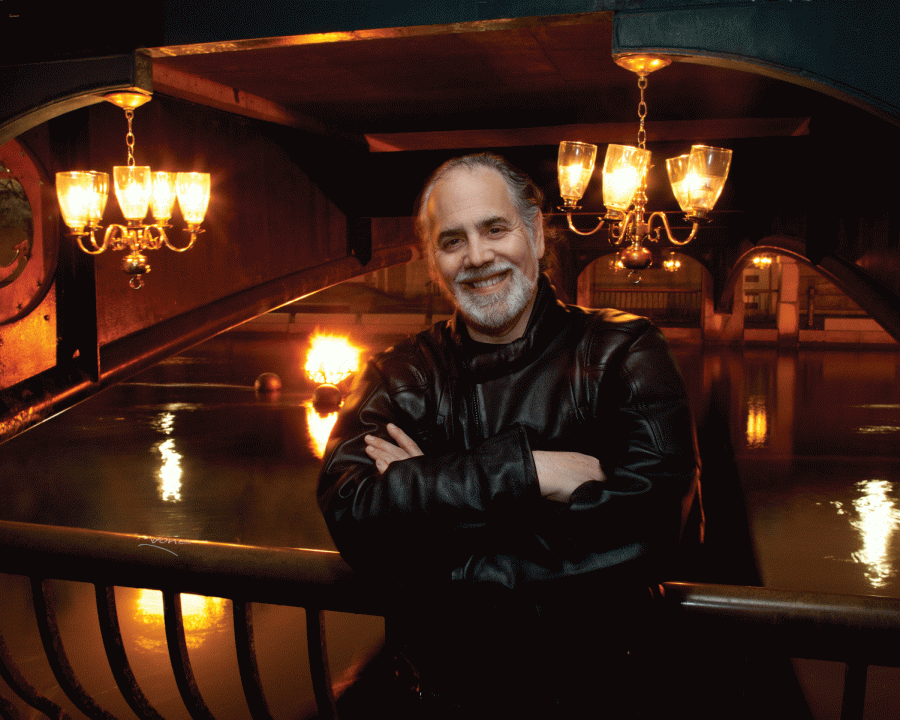Artist in Residence Barnaby Evans Visits Colgate, Continuing the Torchlight Reform Conversation
Colgate’s Artist-in-Residence Barnaby Evans, known for his FireWater installation, visited campus on October 13. Evans is tasked with facilitating the conversation regarding the Torchlight ceremony’s imagery and reform.
On Friday, October 13, Artist-in-Residence Barnaby Evans met with Konosioni, faculty, alumni and students to begin reconfiguring the Torchlight ceremony.
Following violence in Charlottesville, North Carolina involving the use of torches by groups like the Ku Klux Klan and neo-Nazis, torches were not used in Colgate’s Founders’ Day Convocation. Thus, President Brian Casey hired installation artist Evans to help the community reconsider the Torchlight ceremony at Commencement as well.
“Torchlight is riddled with issues; one cannot ignore the striking visual images it creates especially when we are living in a time where the country is still dealing with the hurt from the Charlottesville white supremacist rallies as well as the years of racism and violence black bodies have endured for centuries. However, Torchlight shines a light on a bigger issue that we need to work together as a campus to solve,” junior Tariro Chinyanganya said. Chinyanganya attended the student meeting led by Evans.
This was Evans’ first trip to campus, during which he held meetings that both explained his involvement with the project and began community-wide conversations surrounding the issue.
“Universally I’ve found, across everyone I’ve talked to, a sincere willingness to engage in that dialogue and to make the Colgate experience as productive and as joyful and as rewarding as it can be. And with the 200th anniversary coming up and with this discussion this may be a chance for a larger conversation,” Evans said.
Casey chose Evans because of his work on an installation in Providence, Rhode Island titled, “Waterfire.” In this and many other of Evans’ installments, he has used the symbols of torches and fire to represent, among other things, power and unity for groups such as breast cancer survivors. Evans explained the historical symbolic association of fire to education and the problematic recent associations to hate groups.
In an email sent to students, Evans described the source of his passion for creating art.
“In our world today, there are too few opportunities for people to come together to reaffirm our respect and commitment to each other as a community. It is empowering and joyful to join one’s peers in the making of something both beautiful and meaningful. It is inspiring to gather to reflect as a community and to make a positive statement about our joint intention to make the world a better place,” Evans wrote.
Though there were only three students attending the meeting open to all students, Evans also met with faculty, Konosioni and alumni. He felt that attendees both for and against the standing Torchlight ceremony were open to new and opposing opinions.
“Of the people who have been interacting with me, I think we have been able to start a realization that there are not just two answers here. There is a whole universe of potential interactions and interventions that this community could decide that they might want to be involved with,” Evans said.
In the meeting open to all students, Casey proposed that, in avoiding difficult conversations that may critique Colgate, the community misses opportunities to celebrate its strong suits like the esteemed faculty or events like “This is Not a Play About Sex.” He feels that rituals and traditions can be an extremely important unifier in both difficult and joyful times on campus, as he saw in his time at the University of Notre Dame. He believes that Colgate’s campus has a lot to celebrate.
“What we do ritualize in this institution is separation. We are really good at ritualizing exclusivity and really bad at ritualizing inclusivity,” Casey said.
The meeting with students particularly looked to the end of the Torchlight ceremony as a missed opportunity to unify the community as people depart to their separate, exclusive communities.
“The ceremony has lost any meaning it may have had in the past. It has now become a celebration of exclusivity, fostering an idea that, even in coming together, we are not unified as a student body. We need to work together to create an atmosphere of inclusivity and foster appreciation of each other across campus groups and spaces,” Chinyanganya said.
Though specific meetings have not been set up yet, Evans will continue to work with the community going forward to find some new or adjusted ritual that is more inclusive.
“To have a chance to change the fundamental ceremonial aspects of how an institution as prestigious as Colgate sees itself is a rare opportunity and a great honor for the students and community members who would be working on that,” Evans said.
Evans welcomed suggestions on how to move forward with his project in his email addressed to the Colgate community.
“I do not come with solutions; I come to listen. I look forward to hearing and learning from you – in person or by e-mail at bevans@colgate.edu. Please share your ideas, knowledge, memories, experiences, and passion with me, as well as your concerns. In turn, I will share my experience and ideas with you,” Evans wrote.
Contact Emily Rahhal at
erahhal@colgate.edu
Emily Rahhal is a senior from Los Angeles, California double concentrating in Middle Eastern and Islamic Studies and Religion. She has previously worked...





